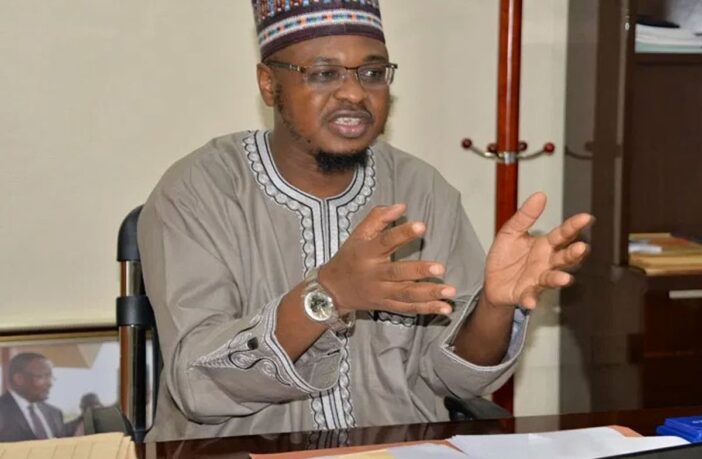Dr Isa Pantami, Minister of Communications and Digital Economy, says the Federal Government is keen on developing Nigeria into a digital economy.
Pantami said this on Thursday in Abuja at the National Dialogue on telecoms and ICT sector in Nigeria organised by the Association of Telecommunications Companies of Nigeria (ATCON), with the theme “Harnessing the digital resources for the building of our national economy”.
The Minister, in his key note address acknowledged the challenges of developing a digital economy in Nigeria.
“In Nigeria, we are keen to develop a digital economy that will have a great impact on every sector of Nigeria’s economy,” he said.
He enumerated some challenges of developing a digital economy in the country to include; rapid evolution of technology and widening inequalities between the digital “haves” and “haves-not” and the need for new regulations.
Pantami named others to include cybercrime and other threats; low level of digital literacy; and need for infrastructure.
Speaking further he said that a number of opportunities were abound in the economy, once it was placed on the right track.
Pantami said they included economic growth and productivity, increased transparency, growth of digital innovation and entrepreneurship, digitisation of work, and useful insights from big data.
In addition he said, digital economy can contribute to the nation’s Gross Domestic Product (GDP) more than ICT which contributed 17 per cent in 2019.
“According to the Q2 ‘2020 GDP Report by the National Bureau of Statistics, ICT contributed an unprecedented 17.83 per cent to the GDP.
“The effect of the digital economy is even far greater than the ICT contribution shows.
“The digital economy encompasses ICT and all digital services, which includes all online activities in financial institutions, ecommerce, online tax payment, any form of online payment, online banking, etc.
“When we consider these, the contribution of the digital economy could be up to 45 per cent or even more.
“The telecom and ICT sector stand to gain a lot from the development of our digital economy and the public and private sectors need to partner to maximise the impact,” he said.
Prof. Umar Danbatta, Executive Vice Chairman, Nigerian Communications Commission (NCC), in his paper pledged the commission’s commitment towards driving the nation’s digital economic policy.
“The NCC remains committed to driving the National Digital Economy Policy and Strategy (NDEPS) and the Nigerian National Broadband Plan (NNBP) 2020-2025 for advancing the digital economy vision of the federal government.
“As you are aware, our role is to drive major digital initiatives and policies of the government, hence, we have continued to work with government as a critical stakeholder,” he said.
He reaffirmed the commission’s commitment to fulfill its part of the agreement with the infracos, which was a major aspect in achieving the national broadband plan of 70 per cent broadband penetration by 2025.
“We are committed to the execution of the counterpart funding agreements with the Licensed InfraCo to facilitate increase in fibre deployment in the country.
“To ensure, at least one Point of Access (PoA) in each of the 774 Local Government Areas (LGAs) in Nigeria enhance digital transformation.
“The commission has, so far, awarded the sum of N336.4 million as research grants to the academia and has endowed professorial chairs in two Nigerian universities.
“The NCC has also remitted N362.34 billion from 2015 till date to the Federal Consolidated Revenue Fund (CRF), through spectrum fees and operating surplus,” he said.
FG Keen On Developing Nigeria Into Digital Economy -Minister
Share.




